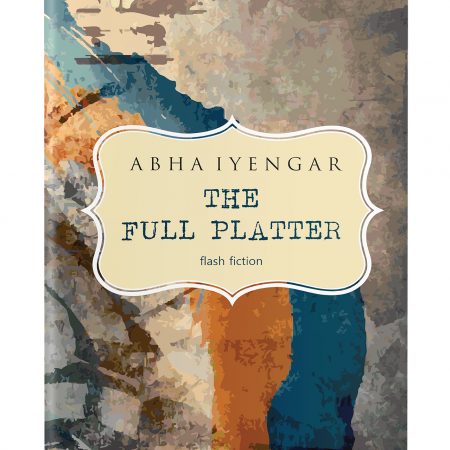Solitary Stillness
₹200.00
A chapbook of twenty verses, stunningly illustrated by painter Joyeeta Bose. In Solitary Stillness we are shown what it is to shun the world for one’s personal pleasure and leisure. A poet especially needs quiet moments simply to reflect. As Sengupta noted in a recent interview, “poets are self-motivated souls.” These poems unite culture and language in a variety of word games and descriptive allusion. After the reading of the collection, you are buoyantly left with a feeling of dream and wish to return to the womb of the book.
In stock
Additional information
| Weight | 0.45 kg |
|---|---|
| Dimensions | 8.5 × 5.5 × 0.2 in |
| Author | |
| Binding | |
| Edition | |
| ISBN | |
| Language | |
| Page Count | |
| Publisher | Hawakal Publishers |
| Release Date | 31 August 2018 |
Press Reviews
With his master strokes, Sengupta offers an all-pervasive analysis of the microcosm, his seemingly nonchalant style being the most powerful weapon to demolish our long-cherished views about human life: the claustrophobic existence in the City of Joy as depicted in “The Bengali Phenomenon”; the suffering of Christ in the time of crucifixion as written in “Expressions”; and the appalling lightlessness when shadows grow longer as portrayed in “Illumination.” Sengupta extends the metaphor of the book’s title in some of the poems, emphasizing the essential loneliness of our existence when we speak to ourselves in prose or verse: “I now have arrived to an understanding. I no longer seek company.” — World Literature Today
Sengupta’s poetry has always had the motif of spirituality woven into them, and in this collection, the wise maturity has seen through death too much: the pieces are not morbid, but they are solemn, and the poet has shown restraint in this regard. In the words of poet Dustin Pickering, “Wisdom, that highly sought yet abundantly ignored prospect, appears as a questioning and also a unification of ancient wisdom with modern concern — the praise of folly is widened to include the crass materialism and strife riches often bring. We are goofy children who don’t know what is best for us and yet we strive to take risks and render ourselves absolved after development. I am sure Sengupta and I are not the only ones wondering why the words of Christ are used to condemn those who command less or who suffer from conditions they cannot help.” — Red Fez
There is this and nothing else. Two men along with their twin shadows walking in a lane from its light end to its dark end is a profound metaphor for life’s journey. The past is an end where we cannot go back, the present is the light that makes us see things, and the future is the unknown, unseen and hence, dark. Shadows vanish when there is light all around and shadows also vanish when there is darkness all around. It is this peculiarity of shadows and yet when there is light at one end and darkness at the other end, the shadows appear, giving a direction, a perspective, a meaning to a journey. Shadows, which are not flesh and blood, have nothing corporal about them, not even light. Their lightlessness indicates so much that we don’t know, so much that lie in the darkness, the dark half that never comes into our view, the dark matter that mystifies, the darkness of absence. Until there is illumination; who will now bathe in the gush of glow? — Cafe Dissensus






Reviews
There are no reviews yet.